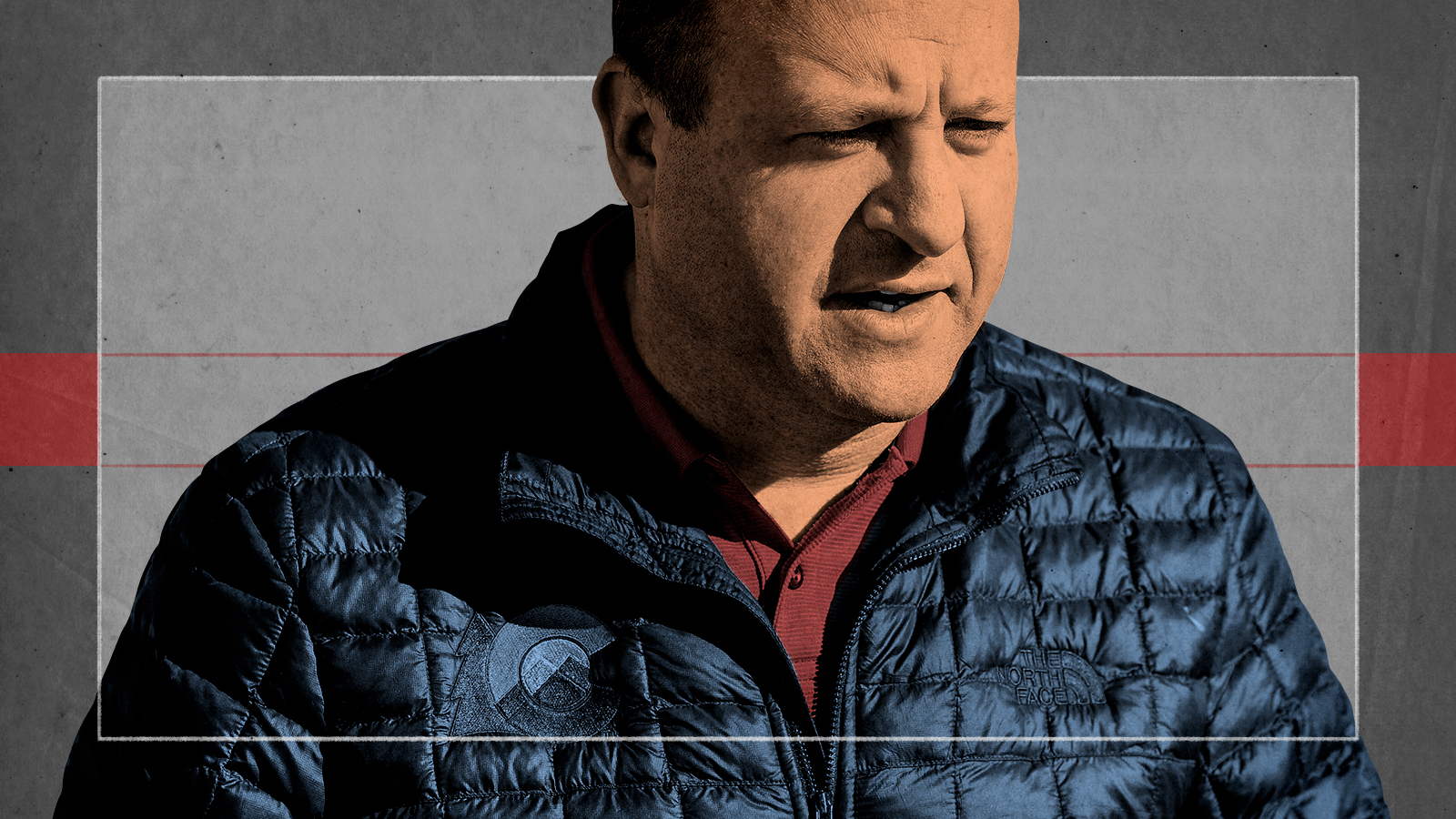Civility is nice, but it will only take you so far on abortion


A free daily email with the biggest news stories of the day – and the best features from TheWeek.com
You are now subscribed
Your newsletter sign-up was successful
Colorado's Democratic governor, Jared Polis, has acquired a reputation as a bipartisan bridge-builder. He was the only Democrat ranked in the top 10 of governors by the conservative American Legislative Exchange Council. He was praised for his relaxed attitude on COVID-19 regulations after the vaccines were widely available. He talks to conservative publications.
"He's done a great job as governor of Colorado, and I anticipate that he'll do really well going into the future," said Art Laffer, the famous supply-side economist from the days of Ronald Reagan who received the Presidential Medal of Freedom from former President Donald Trump.
And now Polis has signed one of the nation's most liberal abortion laws, effectively allowing the procedure for all nine months of pregnancy. As the Supreme Court prepares to take a case that could erode or overturn Roe v. Wade, red and blue states are increasingly sorting on abortion policy.
The Week
Escape your echo chamber. Get the facts behind the news, plus analysis from multiple perspectives.

Sign up for The Week's Free Newsletters
From our morning news briefing to a weekly Good News Newsletter, get the best of The Week delivered directly to your inbox.
From our morning news briefing to a weekly Good News Newsletter, get the best of The Week delivered directly to your inbox.
But most of the red state governors signing restrictive abortion bills aren't trying to be perceived as people who can reach across the aisle to get things done. They want to be seen as leaders of the conservative movement or future Republican presidential nominees. Polis hasn't otherwise governed as someone looking to claim the mantle of most liberal chief executive, even though he was a committed progressive in Congress.
Colorado has become a very pro-choice state, which is one of the reasons it has gradually shifted from red to blue. But its abortion law illustrates how difficult bipartisanship is in a country where the two parties genuinely have fundamental disagreements about issues that matter to voters. Civility, a willingness to engage with ideological opponents, and a few tax cuts can only go so far in papering over differences over when human life begins or whether abortion is the unjust killing of a baby in the womb.
That's not to say it wouldn't be better if more politicians could disagree in a civil tone or find common ground where they can. But the reason our politics tends to reward office-seekers who don't do these things is that there are huge differences in values and beliefs in our country today, with millions of voters seeking leaders who will fight for their perspectives — especially on social and cultural issues. Good government types can't avoid these battles.
A free daily email with the biggest news stories of the day – and the best features from TheWeek.com
W. James Antle III is the politics editor of the Washington Examiner, the former editor of The American Conservative, and author of Devouring Freedom: Can Big Government Ever Be Stopped?.
-
 Tourangelle-style pork with prunes recipe
Tourangelle-style pork with prunes recipeThe Week Recommends This traditional, rustic dish is a French classic
-
 The Epstein files: glimpses of a deeply disturbing world
The Epstein files: glimpses of a deeply disturbing worldIn the Spotlight Trove of released documents paint a picture of depravity and privilege in which men hold the cards, and women are powerless or peripheral
-
 Jeff Bezos: cutting the legs off The Washington Post
Jeff Bezos: cutting the legs off The Washington PostIn the Spotlight A stalwart of American journalism is a shadow of itself after swingeing cuts by its billionaire owner
-
 Epstein files topple law CEO, roil UK government
Epstein files topple law CEO, roil UK governmentSpeed Read Peter Mandelson, Britain’s former ambassador to the US, is caught up in the scandal
-
 Iran and US prepare to meet after skirmishes
Iran and US prepare to meet after skirmishesSpeed Read The incident comes amid heightened tensions in the Middle East
-
 Israel retrieves final hostage’s body from Gaza
Israel retrieves final hostage’s body from GazaSpeed Read The 24-year-old police officer was killed during the initial Hamas attack
-
 China’s Xi targets top general in growing purge
China’s Xi targets top general in growing purgeSpeed Read Zhang Youxia is being investigated over ‘grave violations’ of the law
-
 Panama and Canada are negotiating over a crucial copper mine
Panama and Canada are negotiating over a crucial copper mineIn the Spotlight Panama is set to make a final decision on the mine this summer
-
 Why Greenland’s natural resources are nearly impossible to mine
Why Greenland’s natural resources are nearly impossible to mineThe Explainer The country’s natural landscape makes the task extremely difficult
-
 Iran cuts internet as protests escalate
Iran cuts internet as protests escalateSpeed Reada Government buildings across the country have been set on fire
-
 US nabs ‘shadow’ tanker claimed by Russia
US nabs ‘shadow’ tanker claimed by RussiaSpeed Read The ship was one of two vessels seized by the US military
